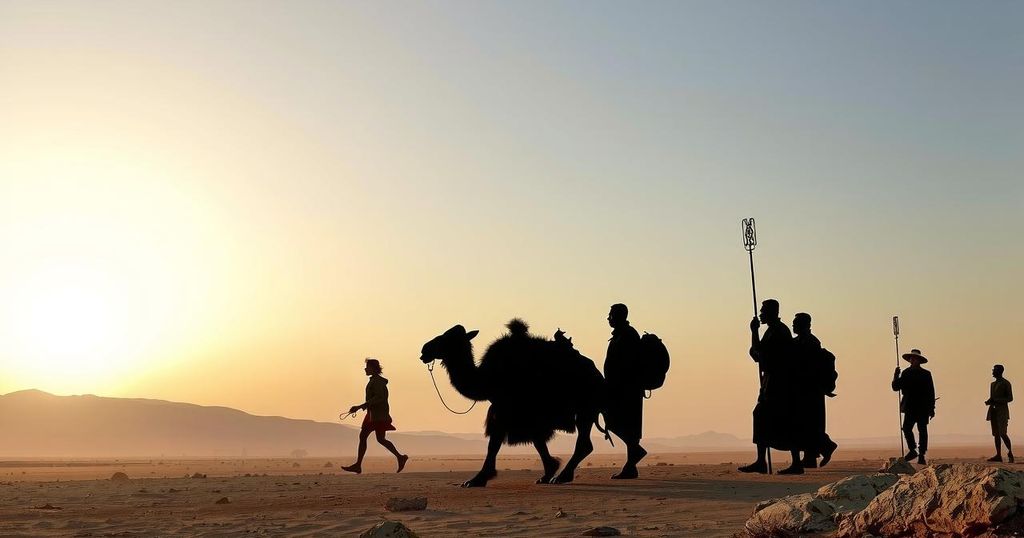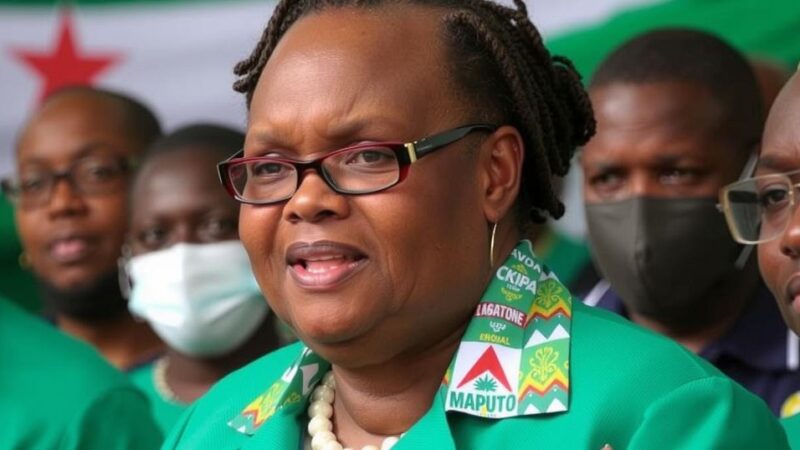The mortal remains of 42 South African freedom fighters were returned from Zimbabwe and Zambia to South Africa on Wednesday, where they were received at the Waterkloof Air Force Base in Pretoria. This initiative, part of a government program for closure, honors those who died in exile during the anti-apartheid struggle. Notable figures such as Duma Nokwe and Florence Mophosho were among those repatriated. President Cyril Ramaphosa will host a ceremonial homecoming on Friday.
On Wednesday, the remains of 42 South African freedom fighters, who perished in exile during the anti-apartheid struggle, were returned to South Africa from Zimbabwe and Zambia. The remains arrived at the Waterkloof Air Force Base in Pretoria, where they were received by government officials and family members following their exhumation in the two neighboring countries. This initiative is part of a government effort aimed at providing closure to the families of those who died while engaged in the underground movements of the African National Congress (ANC) and the Pan Africanist Congress (PAC). Prior to the abolition of apartheid in 1994, many activists had to flee South Africa for military training abroad or to escape arrest due to their involvement in anti-apartheid activities. Zimbabwe and Zambia, recognized for their robust underground support, became common destinations for these freedom fighters. After its prohibition within South Africa, the ANC’s headquarters relocated to Lusaka, Zambia. Unfortunately, many freedom fighters lost their lives in exile and were buried in these countries. Among those whose remains were returned were notable figures such as Duma Nokwe, Florence Mophosho, and Basil February. Deputy President Paul Mashatile recently noted that this repatriation effort forms a crucial part of initiatives aimed at educating future generations about the sacrifices made during the struggle against apartheid. He stated, “As a national memory project, this initiative aims to commemorate, celebrate, educate, promote, preserve, conserve, and provide a durable testament to South Africa’s road to freedom.” A ceremonial homecoming will be hosted by President Cyril Ramaphosa on Friday, where the remains will be handed over to family members for reburial across the nation. The South African government is also working on repatriating the remains of other freedom fighters from countries such as Lesotho, Ethiopia, Tanzania, and Angola, among others. Deputy Defense Minister Bantu Holomisa expressed hope that this ongoing process would connect more families with their loved ones lost under challenging circumstances.
The return of these freedom fighters’ remains highlights the profound sacrifices made during South Africa’s struggle against apartheid. Many activists during the anti-apartheid movement found refuge across southern Africa, particularly in Zambia and Zimbabwe, where they received military training and support. Following their deaths in exile, these individuals were often buried far from their homeland, leaving families without proper closure. Since the end of apartheid, the South African government has initiated programs aimed at repatriating the remains of its fallen heroes as a means of honoring their legacy and providing solace to their families.
The repatriation of the remains of 42 South African freedom fighters represents a significant and emotional endeavor to bring closure to families affected by the apartheid struggle. As the government works to educate future generations about these sacrifices, this act of remembrance serves to both honor the past and reaffirm South Africa’s commitment to acknowledging the contributions made during its journey to freedom. The ongoing efforts to repatriate remains from various countries signify the importance of reconnecting families with their historical ties.
Original Source: www.usnews.com







